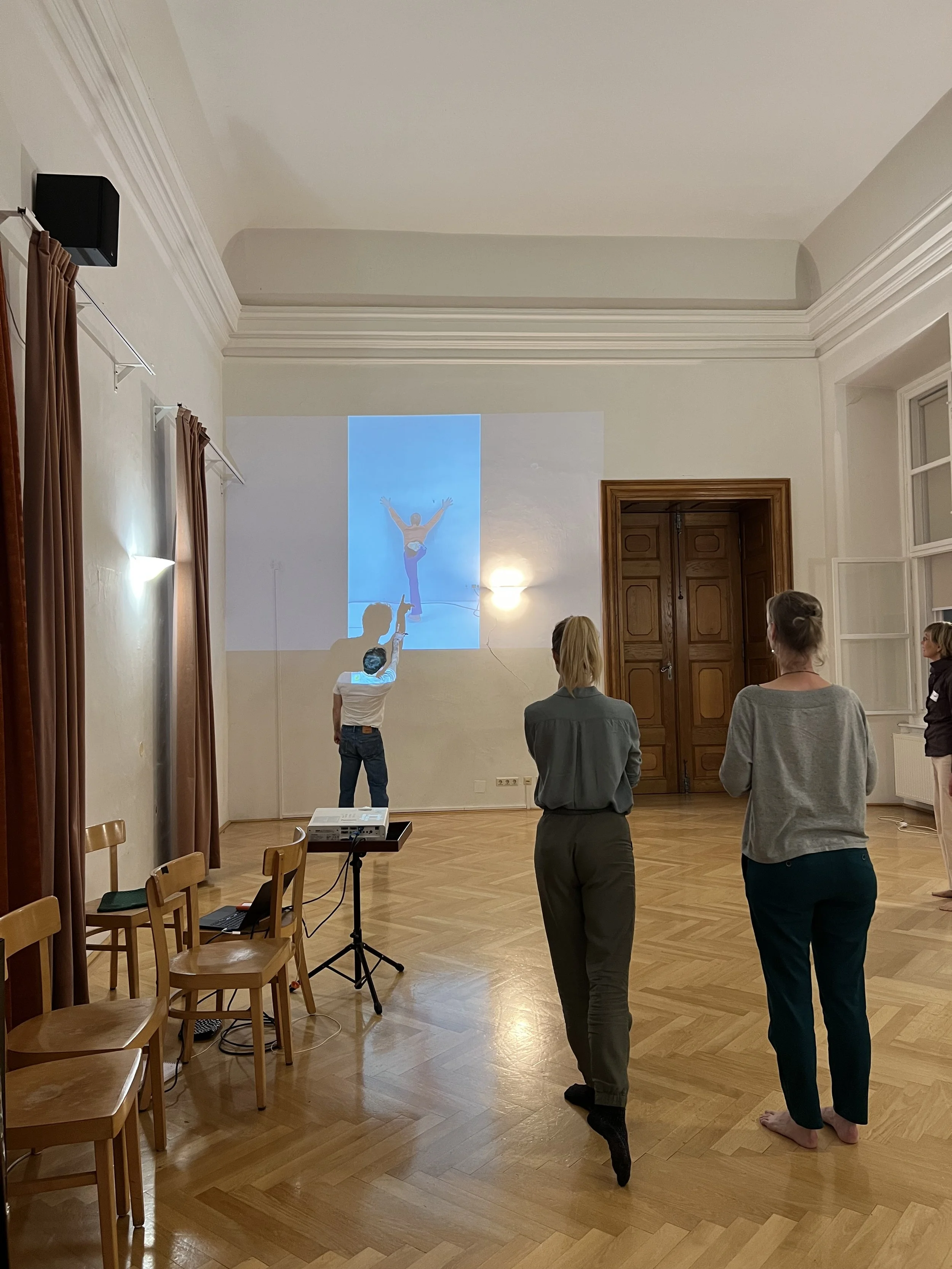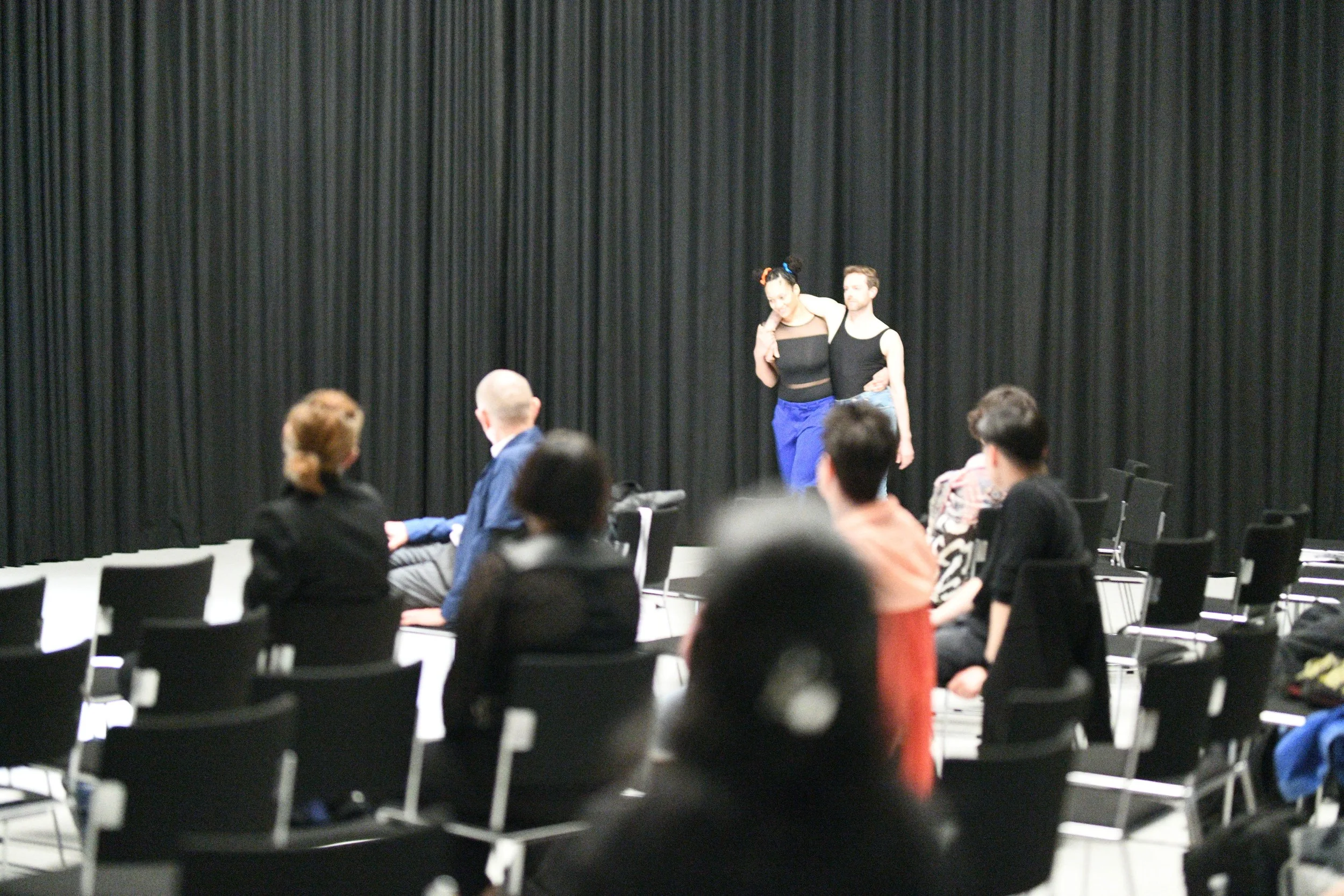Research Interests
Pedagogy and transmission; ballet historiography; artistic research; technique as knowledge; affect and embodiment; minor gestures; female-driven lineages; performative archives; relational aesthetics; ethics of attention in dance practice.

Resisting Mastery (2025), Lecture Performance, Dance Resonance: Artistic Attunement in Motion Symposium, University of Music and Performing Arts Vienna
Academic and artistic research trajectory
PhD Doctoral Project
Artistic Research PhD
University of Applied Arts Vienna
Thesis Supervisor, Bouchra Khalili
Following an MA in Performative Practices, my doctoral research investigates the intersections between classical ballet pedagogy, contemporary dance and performance discourse, and the ethics of artistic transmission. It focuses on how minor gestures—moments of hesitation, attention, or deviation—reveal alternative forms of knowledge within ballet practice. Drawing from oral histories, studio experiments, and collaborations with dancers who studied with Janet Panetta, the project explores how inherited techniques may be rearticulated as sites of reciprocity rather than mastery.
Located in the field of artistic research, the project combines textual analysis and material experimentation to explore the affective and political dimensions of dance pedagogy through film, archival practice, and installation.
Research
Activities
Talks, conference presentations, symposia, workshops, publications, and trans-disciplinary collaborations.
Resisting Mastery (2025)
Lecture Performance
Dance Resonance Artistic Attunement in Motion Symposium
University of Music and Performing Arts Vienna
Bad Ballet* (2025)
Field Research Project
1-week studio-based occasion with international artist-participants
ImPulsTanz Vienna International Dance Festival
*Co-facilitated with Elizabeth Ward & Kevin Fay, with contributions by Dance Historian Anna Leon & Dance Educator/Choreographer Zvi Gottheiner
Angewandte Public Colloquium (2025)
Performance Lecture
The University of Applied Arts Vienna
Let’s Talk About Ballet (2024)
Knowledge Exchange Format for Faculty & MA Students
Dialogue & Workshop with Prof. Dr. Friederike Lampert
Zürich University of the Arts (ZHdK)
Diffractive Dialogues (2024)
Research Laboratory
Co-Teaching & Feedback Exchange with Somatic Practitioner and Educator Malcolm Manning
BACKPULVER Vienna
Janet Panetta Repertoire (2024)
Exhibition on the Life and Work of Artist Janet Panetta
Scholar in Residence
Garth Greenan Gallery, New York City
Angewandte Public Colloquium (2024)
Performance Lecture & Epistemic Decompression
The University of Applied Arts Vienna
Envelope 6 (2024)
Published Essay
The University of Applied Arts Vienna Research Journal
Soften and Make Space (2024)
Special Interest Group (SIG): Facilitation
Tilburg, The Netherlands
Society of Artistic Research Conference
Certain Dance Circumstance* (2023)
Field Research Project
1-week studio-based occasion with international artist-participants
ImPulsTanz Vienna International Dance Festival
*Co-facilitated with Choreographer Lenio Kaklea
Envelope 5 (2023)
Published Essay
The University of Applied Arts Vienna Research Journal
Angewandte Public Colloquium (2023)
Performance Lecture & Exhibition
The University of Applied Arts Vienna
Epistemic Adaptations in Art & Research (2022)
Junior Research Group for the PEERS Program & Artistic Research PhDs at ZHdK
Dialogue with VK Preston & Macklin Kowal
Zürich University of the Arts
